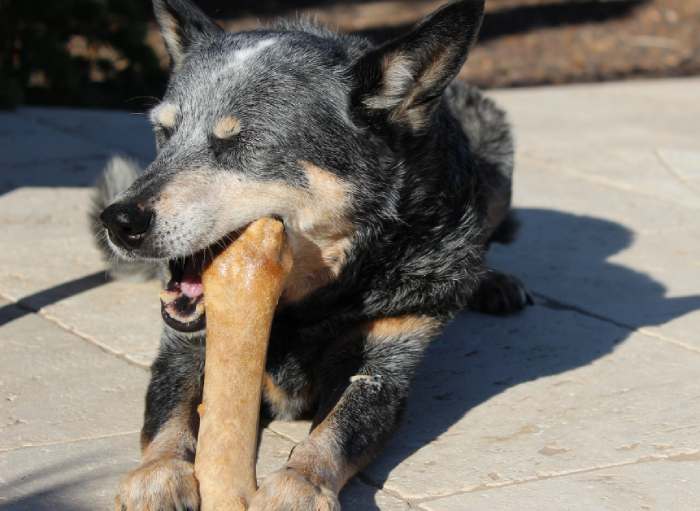Have you ever wondered Is Beefhide Good for Dogs? You’re not alone. Many dog owners are questioning the safety and benefits of this popular chew toy.
This article will delve into the pros and cons of beefhide for dogs, providing the information you need to make an informed decision. We’ll explore what beefhide is, its nutritional value, and any potential risks.
We’ll also examine alternative chewing options and offer expert tips for safe chewing.
So, read on to find out if beefhide is a treat your dog can safely enjoy.
Understanding What Beefhide Is: Exploring the Composition and Origin of Beefhide
Derived from the inner layer of cow or horse hides, beefhide is a chewable product you’re likely to come across in pet stores. Understanding the beefhide production process and the beefhide origin sources is crucial.

The production process begins with the collection of hides from slaughterhouses. These hides are then cleaned thoroughly to remove any remaining flesh or hair. Next, they’re split into layers. It’s the inner layer that’s used to produce beefhide. This layer is then cut into various shapes and sizes and often treated with flavorings to make it more appealing to your pet.
As for the sources, beefhide primarily comes from cows and horses, though the quality can vary depending on the source.
Nutritional Value of Beefhide: Analyzing the Nutrient Content and Benefits for Dogs
When considering the nutritional value of beefhide, it’s essential to understand that its primary benefit lies in promoting oral health rather than providing nutrients. You see, beefhide doesn’t have a high nutritional value. However, its digestibility can be significantly improved through various hide preparation methods.

Treating the hide with enzymes, for instance, can make it more digestible for your dog. This process breaks down the tough fibers in the hide, allowing your dog to digest it and gain some nutritional benefits easily.
However, it’s important to note that beefhide shouldn’t be your pet’s primary source of nutrition. It’s best used as a chew treat to support dental health rather than as a food source.
Potential Risks and Concerns: Identifying Hazards Associated with Beefhide Consumption
While you might be drawn to beefhide chews for their dental benefits, you should also weigh the potential risks and concerns associated with these treats.
One prime concern is choking hazards. Beefhide chews can sometimes break into large, hard pieces that dogs may choke on if swallowed.
Additionally, there’s a risk of Digestive Issues. As beefhide is tough and fibrous, it mightn’t fully break down in your dog’s digestive system, leading to intestinal blockage or indigestion.
Furthermore, some dogs might’ve allergic reactions to beefhide, resulting in skin irritations or gastrointestinal upset. It’s essential to monitor your dog while enjoying a beefhide chew and consult with your vet if you notice any adverse reactions.
Examining Beefhide Alternatives: Exploring Safer Options for Canine Chewing and Entertainment
If you’re concerned about the potential risks of beefhide, there are numerous safe and healthy alternatives you can offer your dog instead. These include vegetable-based Chews, which provide dental benefits and are highly digestible.
Consider the following options:
- Vegetable-Based Chews: These are made from natural, plant-based ingredients and are an excellent choice for dogs with sensitive stomachs.
- Dental Chews: These are designed to clean your dog’s teeth and improve oral health.
- Rubber Toys: Durable and safe, these can be filled with treats to entertain your dog.
Expert Tips for Safe Chewing: Implementing Guidelines for Responsible Beefhide Use in Dogs
Despite the options for safe alternatives to beefhide, you’ll want to ensure that your dog’s chewing habits remain safe and beneficial for their health. Observing and guiding your dog’s chewing techniques can significantly reduce potential hazards. Always supervise your pet during chew sessions to prevent accidental swallowing of large pieces.
Moreover, regular dental check-ups are essential to assess the dental benefits of your dog’s chewing habits. Look out for signs of improved oral hygiene, such as fresher breath and cleaner teeth. However, if you notice any negative changes, consult your vet immediately.
Frequently Asked Questions:
Due to digestive concerns, you should moderate your dog’s beef hide chew intake. While chewing benefits exist, limiting it to once or twice a week is best to avoid potential gastrointestinal issues.
Yes, puppies can have beef hide chews, but moderation is key. They provide chewing benefits, yet overconsumption can negatively impact digestive health. Always supervise your puppy while enjoying these treats to ensure safe consumption.
If your dog shows allergy symptoms like itching, redness, or discomfort after consuming beefhide, they may be allergic. Consider beefhide alternatives and consult your vet for a definitive diagnosis and treatment plan.
No specific breeds should avoid beefhide chews due to breed-specific risks. However, individual dogs may have different beefhide digestibility. It’s always best to monitor your dog when they’re chewing beefhide for the first time.
If your dog swallows a large beefhide chew, monitor him closely for choking hazards and potential digestive complications. Should you notice any distress, immediately contact your vet for professional assistance.
Conclusion:
So, is beefhide good for dogs? It’s a yes and a no. It offers some nutritional benefits and can keep your furry friend entertained. No, because potential risks lurk, like choking or digestive issues. Alternatives exist, but remember, safe chewing is paramount.
You love your pet; you cherish their health; you desire the best for them. Therefore, make an informed decision, consult with your vet, and choose what suits your dog’s needs best.

Hey there, I’m Janet Brooks, a dog-loving student from California. I’m all about helping pups in need, especially those without homes. Me and my awesome friends work together to give shelter and love to stray dogs. Oh, and I also write blogs about dogs to share helpful info.